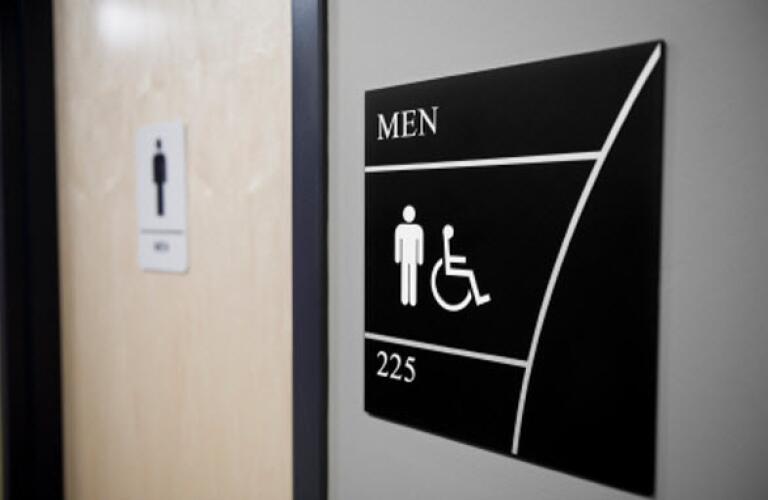7 Causes of Urinary Incontinence in Men
Last Updated: August 24, 2019
Was this helpful?

Urinary incontinence means accidentally leaking urine. This condition is much more common in women because it can result from pregnancy and birth. However, a survey done by the Urologic Diseases in America Project, found that up to 17% of men may suffer from urinary incontinence.
Urinary incontinence in men increases with age but can also be caused by prostate problems, diseases that affect the nervous system, and injuries. There are three basic types of incontinence:
- Stress incontinence. This occurs when the pressure inside your bladder increases from doing things like lifting, coughing, or sneezing. The increased pressure can cause urine to leak.
- Urge incontinence. This occurs when the need to urinate is so strong that you can't control it.
- Overflow incontinence. This occurs when urine dribbles or leaks out in small amounts and can happen even when you don't feel the need to urinate.
Common Causes of Urinary Incontinence in Men
Prostate gland problems and treatments are the most common causes of urinary incontinence in older men. This gland, which is normally about the size of an almond, sits at the opening of your bladder. The purpose of your prostate is to add fluid to your semen when you ejaculate. The problem with this gland is that it tends to get bigger as you get older. That can cause the urine flow from your bladder to slow down.
Other common causes of incontinence in men are nerve and muscle control problems. There is a muscle at the opening of your bladder called the urinary sphincter. This muscle allows you to open and close your bladder. Anything that affects the nerve or muscle function of your sphincter can cause incontinence.
- BPH. BPH stands for benign prostatic hyperplasia. Most men's prostates start to enlarge after age 40. As the prostate enlarges, it compresses the urethra (the tube that empties your bladder), and you may start to experience incontinence. Most men have some BPH symptoms by age 60, and 90% of men have symptoms by age 70 to 80.
- Prostate Surgery. Both BPH and prostate cancer may be treated by surgically removing the prostate gland. Radical prostatectomy (complete prostate removal) is the most common cause of stress incontinence. This surgery can cause incontinence by damaging the muscles or the nerves that control urine flow. About 30% of men have incontinence after radical prostatectomy. Other types of prostate surgery and treatments can also cause incontinence.
- Diabetes. Diabetes causes nerve damage that can affect your ability to control the muscles that open and close your bladder. It can also cause frequent urination that may contribute to incontinence. Obesity (common in type 2 diabetes) can make incontinence worse by putting more pressure on your bladder. Diabetes most commonly makes your bladder overactive, causing urge incontinence.
- Stroke. Stroke is brain damage caused by decreased blood flow to the brain from a clot or a leaking blood vessel. About 700,000 Americans have a stroke every year, and stroke is more common in men than women. Stroke causes both loss of muscle control and decreased sensation, so urinary incontinence is common after stroke. Not being able to get up and go to the bathroom also contributes to incontinence. Fortunately, the majority of people who recover from stroke do not have permanent incontinence.
- Neurological diseases. Two common neurological diseases that may cause incontinence are multiple sclerosis (MS) and Parkinson's disease. This is because these conditions can make it difficult to send and receive nerve signals between the central nervous system and the bladder. MS is likely to cause overflow incontinence. About 80% of people with MS have some incontinence. About 25% of people with Parkinson's disease have incontinence symptoms, the most common is urgency incontinence. People who have MS or Parkinson's disease are also more likely to get bladder infections due to incontinence.
- Spinal injury. Spinal cord injuries affect about 12,000 Americans each year, and more than 80% of them are men. Nerve signals between the bladder and the spine go and come very low in the spine, so any severe injury to the spine is likely to cause incontinence. An injury to the upper part of the spine can cause the bladder to empty uncontrollably. This condition is called spastic bladder. An injury lower in the spine can cause the bladder to fill and stretch without being able to empty. This condition is called flaccid bladder.
- Temporary causes of incontinence. You can also have temporary episodes of urinary incontinence. These can be caused by drinking too much caffeine or alcohol, being constipated, having a urinary tract infection, or being depressed. Medications are another possible cause. These medications include over-the-counter cold medications that contain antihistamines or decongestants, diuretics used to treat high blood pressure, and some medications used to treat depression.
If you have urinary incontinence symptoms like leaking under stress, overflowing, or being unable to control the urge to go, talk to your doctor. Many men are embarrassed by these symptoms and wait too long to see a doctor. That's a mistake because the situation may get worse and there is likely to be a good treatment that can help you.
Key Takeaways
- Urinary incontinence is the accidental leaking of urine.
- Up to 17% of men may have this condition at some time.
- Prostate problems are the most common cause of incontinence in older men.
- Other causes include diseases, conditions, or injuries that affect nerve or muscle control of the bladder.
- Don't ignore symptoms of incontinence.
Was this helpful?
Kidneys And The Urinary System
About The Author
Medical Reviewer: William C. Lloyd III, MD, FACS
Last Review Date: 2019 Aug 24





Comments